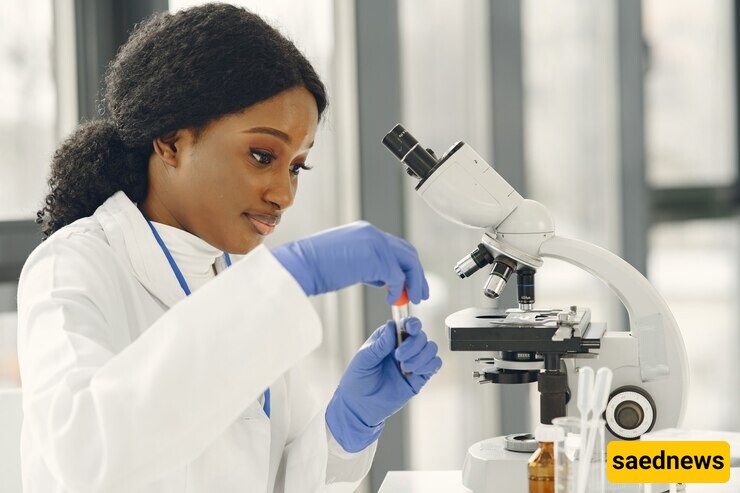SAEDNEWS: Biotechnology is revolutionizing healthcare with breakthroughs in genetic engineering, personalized medicine, and disease prevention. This evolving field holds immense potential to improve human health and tackle challenges like cancer, genetic disorders, and pandemics.

According to SAEDNEWS, biotechnology has become a cornerstone of innovation in healthcare. By combining biology with cutting-edge technology, this field is developing solutions to improve patient outcomes, combat diseases, and enhance overall well-being. Advances in genetic research, drug development, and diagnostics have positioned biotechnology as a key driver of future healthcare.
 Precision Medicine in Practice
Precision Medicine in Practice
Personalized medicine, driven by biotechnology, tailors treatments based on an individual's genetic makeup. This approach allows for precise interventions, reducing side effects and improving treatment efficacy. For instance, targeted therapies for cancer utilize genetic profiling to identify specific mutations, enabling customized treatment plans.
Gene Editing and CRISPR Revolution
CRISPR technology has revolutionized genetic engineering by allowing scientists to edit DNA with unprecedented accuracy. This breakthrough has opened avenues for treating genetic disorders like sickle cell anemia and cystic fibrosis. As research progresses, CRISPR could become a standard tool for correcting genetic mutations.
Biotechnology has been instrumental in developing vaccines, including mRNA technology used in COVID-19 vaccines. This innovative approach enables rapid production and adaptability, which are critical during pandemics. The success of mRNA vaccines has paved the way for future vaccines targeting other diseases like HIV and malaria.
The rise of antibiotic-resistant bacteria is a global health concern. Biotechnology offers solutions such as bacteriophage therapy, where viruses target and destroy harmful bacteria, and new antibiotic development techniques to counter resistance.
Stem Cell Therapy
Biotechnology is advancing stem cell research, which holds promise for regenerating damaged tissues and treating chronic conditions like Parkinson’s disease and spinal cord injuries. Stem cell therapies are already being used for bone marrow transplants and have potential for broader applications.
Tissue Engineering and Organ Replacement
Through 3D bioprinting and tissue engineering, biotechnology is addressing the shortage of organ donors. Scientists are developing lab-grown organs and tissues, offering hope to patients awaiting transplants. This innovation could drastically reduce transplant waiting times and improve survival rates.
Enhanced Drug Discovery
Artificial intelligence (AI) and big data are transforming drug development by analyzing vast datasets to identify potential compounds. This speeds up the discovery process and reduces costs, enabling quicker access to life-saving medications.
Predictive Analytics in Healthcare
AI-powered predictive models are improving diagnostics and disease prevention. By analyzing genetic and environmental factors, these tools help identify individuals at risk of developing diseases, enabling early interventions and lifestyle changes.
Balancing Innovation with Ethics
While biotechnology holds immense promise, it also raises ethical questions, particularly regarding genetic editing and privacy. Debates continue around the use of CRISPR for human germline editing and the potential misuse of genetic data.
Ensuring Safety and Accessibility
Regulatory frameworks are essential to ensure the safety and effectiveness of biotechnological innovations. Equally important is making these advancements accessible to all, bridging the gap between developed and developing nations.
Biotechnology is poised to redefine healthcare, offering solutions to some of the most pressing medical challenges. From personalized treatments and advanced diagnostics to regenerative medicine and global health initiatives, its potential is limitless. As science progresses, addressing ethical concerns and ensuring equitable access will be critical to realizing the full promise of biotechnology. The future of human health has never looked more promising.

